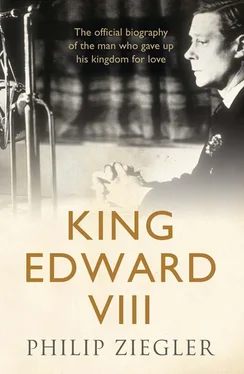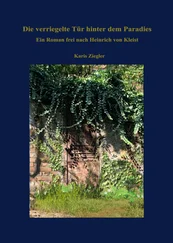But it was not primarily the British authorities who thwarted his efforts to get through to the Indians; Gandhi and the Congress Party ensured that the crowds were rarely there to succumb to his blandishments. He was disappointed and dismayed when, in Allahabad, less than a thousand Indians were on the streets out of a total of 120,000 – ‘we go from cold to frost,’ commented Halsey. 31He was infuriated when, at Benares, the university authorities tried to cover up for a student boycott by filling the empty seats ‘with high school boys, boy scouts and Europeans; I suppose they hoped I would never get to hear … what a BF they had made of me’. 32He was outraged when the Chief Commissioner of the North West Frontier Province, Sir John Maffey, took alarm at threats to assassinate the Prince and redirected his procession through the back streets of Peshawar. Convinced that everyone would believe him a coward, he returned to Government House in what Mountbatten described as ‘the blackest rage I ever hope to see him in’. 33The Prince described the incident to Mrs Dudley Ward as ‘the worst thing that has happened to me in India’, and blamed himself for not overruling Maffey – ‘but then you know I’m not very good in a crisis, Fredie darling, and do lose my head all too easily’. 34Maffey, in a different sense, would have lost his head if he had stuck to the original plan and the Prince had been murdered. The police can hardly be blamed for their vigilance. There was real danger; the Prince’s staff knew of at least two cases in which people had been offered more than a thousand rupees to throw a bomb at the royal visitor. 35
The Prince had no sympathy for the independence movement and blamed Edwin Montagu for fomenting it. His letters home are filled with denunciations of ‘that despicable man’ who had ‘given in and pandered to the natives’. Naturally the Indians wanted more, ‘which they can’t possibly have so long as we maintain the policy of governing and running India’. The result was ‘hopeless unrest’ and growing support for Gandhi: ‘It’s all very disgusting and very depressing.’ 36He rejoiced when Gandhi was arrested and Montagu resigned, but feared it was too late. Montagu’s reforms had so far changed the atmosphere in India that ‘most Englishmen of Indian experience are dissuading their sons or any good fellow from coming out’. As a result the standards in the Indian Civil Service were slipping, ‘and, as you know, the natives are the quickest to size up a white man and can always recognize a gent, or anyway a “nature’s gent” which is even better’. 37Given what he saw as the incipient collapse of British rule in India, he felt that his own presence was a mere palliative, as irrelevant as applying a piece of sticking plaster to a gaping and mortal wound. His visit was unwanted by the Indians and of doubtful value to the British. His speeches, which were written for him by a member of the Indian Civil Service attached to his staff, struck Piers Legh as ‘really lamentable … claptrap of the worst description’. 38The Prince read them conscientiously but loathed them. The men who composed them, he considered, were ‘bureaucratic and behind the times. They can’t help it, poor brutes, as the Indian Govt is the same.’ 39
By mid-December he was in such despair that he contemplated abandoning the tour. He wrote to the Viceroy, bemoaning the fact that he was achieving nothing, meeting almost no Indians, strengthening support for the independence movement rather than diminishing it, causing the expenditure of vast sums of money to no good end. 40The letter exudes pessimism, but his true frame of mind is portrayed more vividly in the letter he wrote to Freda Dudley Ward a few days later:
My beloved, I couldn’t be more gloomy or depressed than I am tonight, and I’m oh! so desperately sad and lonely and missing and oh! wanting you and wanting oh! so badly my precious little Fredie!! I naturally want you most when I’m up against it all as I am now, sweetheart, as I do love you love you so, and although I loathe Xmas as a festival, yet it does somehow suggest happiness, and it’s so ironical everyone wishing me a happy Xmas … Surely they must know that I can’t possibly ever be in the teeniest way happy when I’m away from my Fredie? 41
This was his blackest moment of the tour. Reading’s robust re-assurance that the visit was of immense importance and was ‘doing real good – infinitely more than you think’, 42came at a moment when the crowds had been responding more enthusiastically and the Prince’s morale was in some measure restored. The Viceroy reported in February that the Prince ‘really does feel that his trip has done and is going good’. 43He overstated his case. The Prince really did feel, and continued to feel, that the trip had been, on the whole, a futile enterprise. But he was ready to accept that some Indians had been favourably impressed, some British heartened. He even began to feel a modest measure of pride in his achievements.
As in Australia, physical exhaustion contributed to his depression. He slept badly during the interminable journeys by train, stayed up too late, ate too little, drank and smoked too much, as always overdid the exercise. ‘HRH’s present method of life,’ reported his doctor, ‘is such as may involve a complete breakdown of his whole nervous system.’ 44One trouble was that, deprived of Freda Dudley Ward’s companionship, he got very little fun out of the tour. Confronted by the great archaeological finds at Taxila, he remarked gloomily to Lady Birdwood: ‘This place ought never to have been dug up.’ 45The famous Buddha’s tooth at Kandy in Ceylon ‘isn’t a tooth at all, merely a sordid, dirty piece of bone. Then there was a ghastly procession of elephants which included native dancing and hideous noises, which was really native music.’ 46Almost the only exception was the Taj Mahal. After the statutory visit by moonlight he told Queen Mary that it had ‘gripped me and I shall never forget what I’ve seen tonight’. He even paid a second visit – ‘a contingency,’ Thomas remarked, ‘against which I should have betted heavily’. 47
‘One of the tragic things about this Tour,’ wrote Lord Cromer, ‘is that HRH is not really keen on big-game shooting or shooting of any kind.’ 48Tragic is perhaps too strong a word, but to the Indian princes, who invested shooting with an almost mystic significance, the Prince’s indifference seemed inexplicable. In Nepal fortunes were squandered in setting up a big-game camp; the Prince preferred to wander around with a shotgun looking for jungle fowl, or better still, to exercise his polo pony in a nearby clearing. It was a great disappointment to the Maharaja, Piers Legh told his father. It was a great disappointment to Legh too. ‘Everything is sacrificed to polo, which the Prince is mad about,’ he wrote resentfully. ‘We consequently don’t get as much shooting as we should.’ 49Polo, pig-sticking and steeplechasing were indeed the Prince’s greatest pleasures in India. Yet even on the polo ground he could not escape from his role: in Jodhpur the young players had been told to treat him gently and only on his insistence did they relax and ride roughly against him; in Mandalay his team won a competition, ‘though it’s become such a farce this cup business as somehow it’s always arranged that I should win … and I do loathe it!!’ 50
His morale was not improved by periodic carping from Buckingham Palace. George V was disconcerted to see photographs of the Prince wearing blue overalls with white tunic – ‘A most extraordinarily ugly uniform … The regulations ought never to have been altered without my approval.’ 51He felt ‘little short of despair’ when he read that, at Lucknow, the Prince had taken over the drums in the band playing at a dance at Government House – ‘What will the natives think of the Heir Apparent assuming such a role?’ asked a shocked Lord Stamfordham. 52The band was playing in a gallery, invisible to the dancers, answered Cromer. The journalist who reported the news had been grossly indiscreet. ‘I have spoken to HRH about this and he quite understands the point.’ 53
Читать дальше












